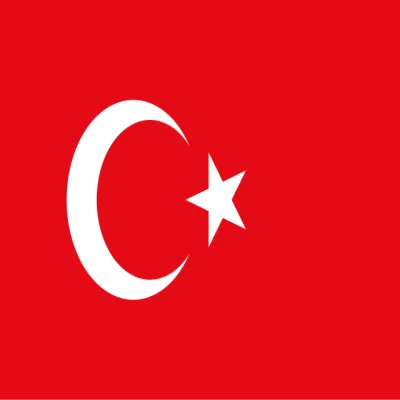Istanbul, one of the world’s most dynamic cities, offers a unique blend of history, culture, and modern living. For expats moving to Istanbul, adapting to the city can be both thrilling and challenging. This comprehensive guide aims to provide you with essential information and tips for a smooth transition to life in this vibrant metropolis.
1. Getting Settled in Istanbul
• Accommodations:
o Neighborhoods: Popular neighborhoods for expats include Beşiktaş, Şişli, Kadıköy, and Beyoğlu. Each area has its unique vibe, amenities, and rental prices. Beşiktaş and Kadıköy are known for their lively atmosphere, while Şişli offers a more modern living experience. Choose a neighborhood that suits your lifestyle and preferences.
o Finding Housing: It’s advisable to contact local expat agencies that specialize in assisting newcomers to Turkey. These agencies can provide valuable guidance on finding suitable accommodations, navigating the rental process, and understanding local real estate dynamics. They can help you locate an apartment that matches your needs and preferences, ensuring a smoother transition.
• Cost of Living:
The cost of living in Istanbul can vary significantly depending on the region. In general, housing and utilities are among the biggest expenses. Plan your budget accordingly for groceries, transportation, dining out, and leisure activities.
2. Cultural Integration and Social Life
• Language:
While many people in Istanbul speak English, particularly in tourist areas and business sectors, learning basic Turkish phrases can enhance your daily life and help you connect with locals. Language courses are available through various institutions and online platforms.
• Cultural Etiquette:
o Greetings: Turks are warm and hospitable. A handshake is common, and people often greet each other warmly. In more formal settings, men might offer a slight bow, while women usually greet each other with a handshake or a friendly hug.
o Dining Etiquette: When invited to a Turkish home, it’s customary to bring a small gift, such as dessert or flowers. When dining out, meals are often shared, so be open to trying various dishes.
• Community Engagement:
Join expat groups and social clubs to meet other foreigners and locals. Platforms like Meetup, Facebook Groups, and local forums are excellent resources for finding events, gatherings, and cultural activities.
3. Navigating Daily Life
• Transportation:
o Public Transport: Istanbul has an extensive public transportation system that includes buses, trams, ferries, and a metro system. The Istanbulkart, a rechargeable transit card, is essential for using public transport and can be purchased at kiosks and stations.
o Taxis and Ride-sharing: While taxis are widely available, ensure that the meter is running. Alternatively, use ride-sharing apps like BiTaksi or Uber for convenience and transparency.
• Healthcare:
Istanbul offers a mix of public and private healthcare services. Private hospitals tend to have bilingual staff and modern facilities. Research local healthcare options and consider getting health insurance to help cover costs. Emergency numbers are 112 for ambulance services.
4. Shopping and Dining
• Grocery Stores:
Familiarize yourself with local grocery stores, including large chains like Migros, Carrefour, and A101. Smaller local markets offer fresh produce, spices, and other essentials. Integrating local Turkish products into your diet can enhance your culinary experience while living in the city.
• Dining Out:
Istanbul boasts a diverse culinary scene, featuring everything from street food to fine dining. Don’t miss trying traditional dishes like kebabs, meze, baklava, and çiğ köfte. Explore various neighborhoods for their unique dining experiences.
• Markets:
Visit local markets such as the Grand Bazaar and Spice Bazaar for an immersive experience in Turkish culture and to shop for souvenirs, spices, textiles, and handicrafts.
5. Education and Childcare
• International Schools:
If you have children, Istanbul has a variety of international schools that offer programs in English and other languages. Elementary and high schools often follow British, American, or International Baccalaureate (IB) curricula. Research schools early, as places can fill up quickly.
• Childcare:
Several daycare and preschool options cater to expats, offering English-language programs to support early childhood education.
6. Leisure and Activities
• Cultural Experiences:
Istanbul is rich in history and culture. Explore its many museums, art galleries, and historic sites, including the Hagia Sophia, Topkapi Palace, and the Blue Mosque. Attend local concerts, exhibitions, and festivals to immerse yourself in the cultural scene.
• Outdoor Activities:
Take advantage of Istanbul's beauty by enjoying parks, beaches, and coastlines. Popular spots include Emirgan Park, Maiden's Tower, and the shores of the Bosphorus. Hiking trails in the nearby Belgrad Forest offer a refreshing escape from the city.
• Nightlife:
Istanbul boasts a vibrant nightlife scene with numerous bars, clubs, and live music venues. Explore areas like Taksim, Kadıköy, and Nişantaşı for entertainment options.
7. Safety and Practical Tips
• Safety:
Istanbul is generally safe for expats, but like any large city, exercise caution. Be aware of your surroundings, especially in crowded areas and tourist hotspots. Keep your belongings secure; pickpocketing can occur in crowded areas.
• Emergency Contacts:
Familiarize yourself with local emergency numbers:
o Police: 155
o Ambulance: 112
o Fire: 110
Conclusion
Living in Istanbul as an expat can be an enriching and exciting experience. By embracing the local culture, understanding customs, and navigating the city's dynamic environment, you will find that Istanbul offers a vibrant lifestyle filled with opportunities for exploration and connection. With its unique blend of history, modernity, and diversity, Istanbul is a city that truly has something for everyone.
.webp)














